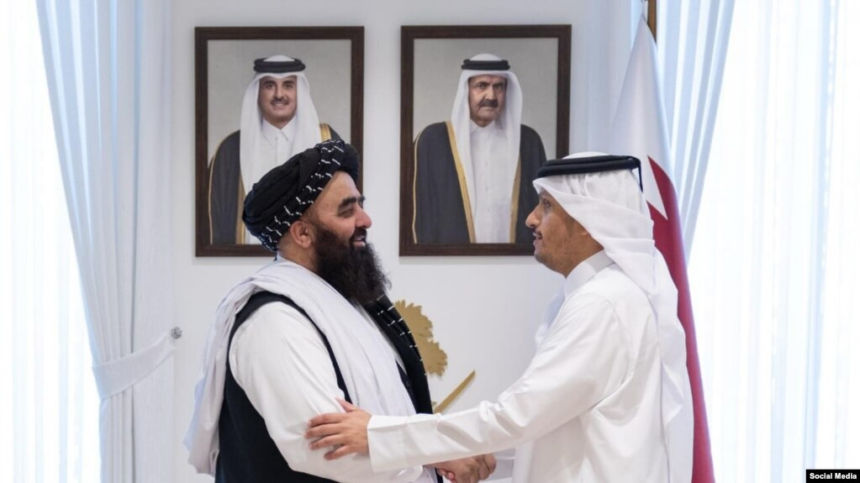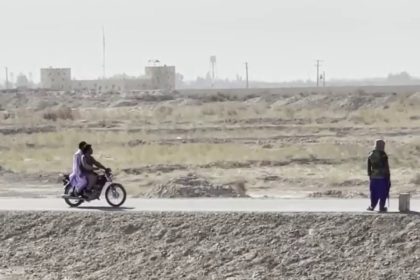RASC News Agency: The Taliban have expressed their readiness to participate in the upcoming fourth round of the Doha Process an international dialogue initiative spearheaded by the United Nations and hosted by the Qatari government. A senior Taliban official, speaking on condition of anonymity, stated that preliminary consultations are already underway in Kabul, Doha, and several participating countries to prepare the groundwork for the next session. While the exact date of the meeting has not been finalized, the official confirmed that both the Taliban and international stakeholders are requesting a clearly defined agenda to guide the discussions. The group has reportedly submitted its own demands to ensure it is granted full participation. The final decision regarding Taliban attendance, according to the source, is contingent upon approval from the group’s senior leadership.
Despite these internal preparations, the United Nations has yet to release any formal details about the planned fourth round, fueling public skepticism and deepening concern among Afghanistani civil society and democratic voices. Critics argue that engaging the Taliban in diplomatic processes while they continue to enforce a gender-apartheid regime, systematically suppress human rights, and reject pluralistic governance, risks normalizing tyranny under the guise of dialogue. Shukria Barakzai, former Afghanistani ambassador to Norway and participant in the first two Doha rounds, warned that the legitimacy of the fourth meeting hinges entirely on the inclusion of diverse Afghanistani voices. “This must not become another stage-managed platform that rewards a brutal regime with international recognition,” she stated. “The Taliban do not represent the people of Afghanistan. The dialogue must include women, civil society leaders, political activists, and representatives of all ethnic groups. Without them, the process becomes a hollow performance.”
The third round of the Doha Process, held from June 30 to July 1, 2024, marked the first instance in which the Taliban participated directly. Their chief spokesperson, Zabihullah Mujahid, who led the delegation, claimed that the meeting included discussions on economic challenges and narcotics control. However, critics noted the glaring absence of any real accountability for the Taliban’s ongoing violations of human rights and press freedom. According to UN spokesperson Stephane Dujarric, representatives from over 30 countries and international organizations attended the meeting, where issues such as women’s rights and social justice were reportedly addressed. Yet, key stakeholders especially Afghanistani women and independent civic voices were once again excluded from the formal negotiation table, relegated instead to symbolic side discussions.
In one such session, UN Deputy Secretary-General Rosemary DiCarlo and UN Special Envoy for Afghanistan Roza Otunbayeva met privately with a group of Afghanistani women’s rights defenders. While this move was intended to signal inclusivity, many activists criticized it as an insufficient and performative gesture that failed to counterbalance the empowerment of the Taliban on the main diplomatic stage. Political analyst and former Afghanistani ambassador to Canada, Shinkai Karokhail, was blunt in her assessment: “We have no reason to expect meaningful change from this fourth round. The Taliban have already proven they are incapable of honoring commitments. They continue to violate every international norm while expecting recognition.”
Karokhail emphasized that unless the Taliban demonstrate genuine willingness to reform their policiesn particularly regarding women’s rights, political pluralism, and freedom of expression any diplomatic engagement will serve only to embolden authoritarianism and betray the Afghanistani people. The first and second Doha meetings, held in May 2023 and February 2024 respectively, were conducted without Taliban participation. Those sessions, though imperfect, were welcomed by many within Afghanistan’s besieged civil society as rare opportunities for dialogue free from Taliban interference.
Now, as the fourth meeting looms, a critical question hangs in the air: will the Doha Process evolve into a genuine platform for inclusive Afghanistani peace building or will it become a vehicle for granting international legitimacy to a regime built on fear, repression, and ideological extremism? The international community must decide whether it stands with the Afghanistani people or with those who silence them.






